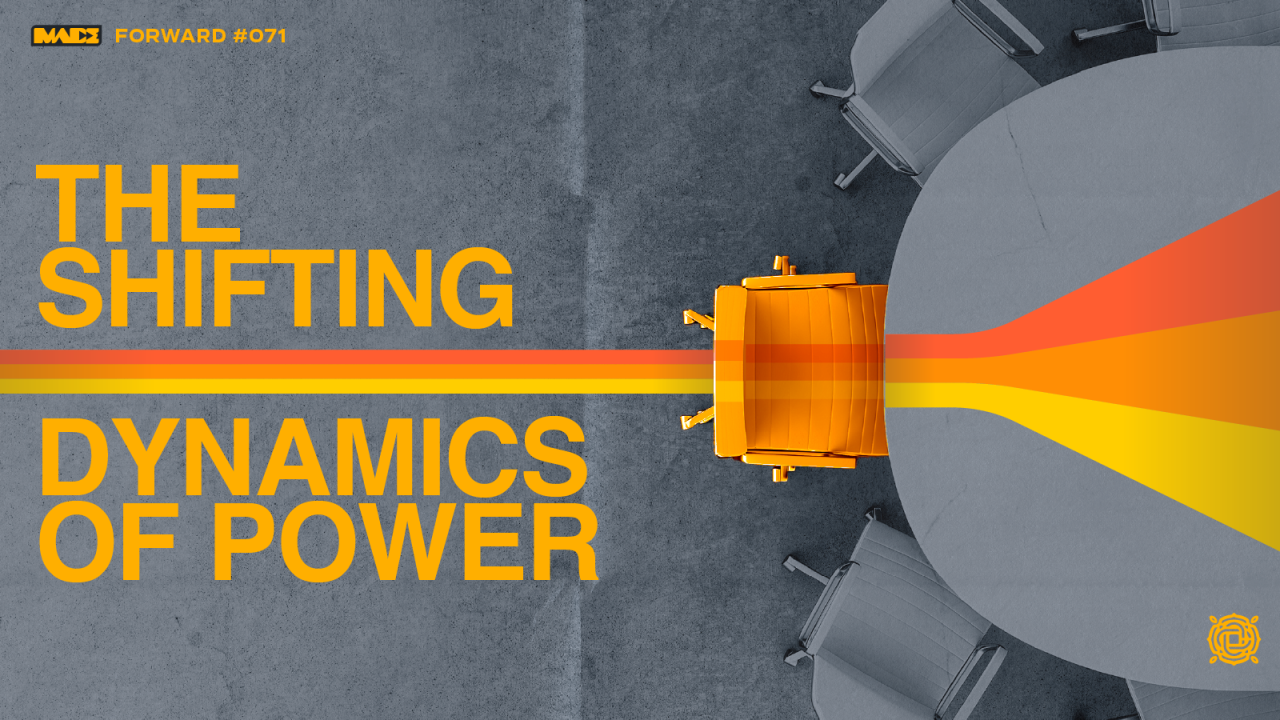Bosses Talk Tough: The Shifting Power Dynamic In The Workplace

Table of Contents
The Rise of Employee Empowerment and its Impact on Management Styles
The old adage of "Bosses Talk Tough" no longer resonates in today's workplace. A fundamental shift is underway, driven by employee empowerment and a changing understanding of what constitutes effective leadership.
Shifting Expectations: Employees demand more than just a paycheck.
Today's workforce prioritizes more than just compensation. They crave:
- Increased Work-Life Balance: The desire for a healthy separation between professional and personal life is paramount.
- Meaningful Work: Employees seek purpose and value in their contributions to the organization.
- Professional Development Opportunities: Investing in employee growth is no longer optional but essential for retention.
- Transparent Communication: Open and honest communication builds trust and fosters collaboration.
The rise of the gig economy and the influx of younger generations into the workforce have significantly influenced these expectations. Millennials and Gen Z, in particular, value autonomy, flexibility, and a sense of purpose in their work, challenging traditional management styles that rely on command and control. This necessitates a move away from autocratic leadership and towards more collaborative approaches.
The "Tough Boss" Archetype is Becoming Obsolete:
The "Bosses Talk Tough" approach, characterized by autocratic leadership and fear-based management, is increasingly ineffective and detrimental.
- Autocratic leadership stifles creativity and innovation.
- Fear-based management decreases morale and productivity.
- Harsh management styles lead to higher turnover rates and damaged company reputation.
This style breeds resentment, hinders collaboration, and ultimately negatively impacts the bottom line. A harsh management style, even if it achieves short-term results, is unsustainable in the long run. Employees are more likely to leave a toxic work environment, leading to increased recruitment costs and a loss of institutional knowledge.
Effective Communication and Transparency as Tools for Power Sharing
Effective leadership in the modern workplace relies heavily on open communication and transparency. These are not merely buzzwords but essential tools for sharing power and building strong, productive teams.
Open Dialogue Fosters Trust and Collaboration:
Transparency and open communication are critical to fostering a positive and productive work environment.
- Regular feedback sessions provide opportunities for constructive criticism and improvement.
- Inclusive decision-making processes empower employees and foster a sense of ownership.
- Transparent communication about company performance and strategy builds trust and reduces uncertainty.
Sharing information openly builds trust, encouraging employees to contribute their ideas and work collaboratively towards common goals. This approach contrasts sharply with the "Bosses Talk Tough" mentality, which often keeps employees in the dark and limits their participation in decision-making.
Active Listening and Empathy are Crucial Leadership Skills:
Effective leaders understand that active listening and empathy are crucial for building strong relationships with their teams.
- Understanding employee perspectives is essential for addressing concerns effectively.
- Creating a safe space for feedback encourages open and honest communication.
- Addressing employee concerns shows respect and builds trust.
Actively listening to employees demonstrates respect and fosters a sense of value. It allows leaders to understand the challenges employees face and to tailor their management strategies accordingly. This approach not only improves workplace relationships but also leads to better outcomes for both the individual and the organization.
Strategies for Bosses to Adapt to the New Power Dynamic
To thrive in this new landscape, bosses must adapt their leadership styles and embrace a more collaborative and empowering approach.
Embracing a Collaborative Leadership Style:
Collaborative leadership is about shared decision-making, empowerment, and mutual respect.
- Delegating effectively empowers employees and allows leaders to focus on strategic initiatives.
- Empowering employees to take ownership fosters a sense of responsibility and accountability.
- Encouraging open dialogue and feedback promotes a culture of continuous improvement.
Leaders should transition from a "Bosses Talk Tough" mentality to one that values input, collaboration and shared responsibility. This involves actively soliciting feedback from employees, recognizing their contributions, and providing them with the autonomy to make decisions within their areas of expertise.
Focusing on Employee Development and Growth:
Investing in employee development is crucial for retention and organizational success.
- Investing in training and mentorship programs demonstrates a commitment to employee growth.
- Providing opportunities for advancement motivates employees and fosters loyalty.
- Fostering a culture of learning encourages continuous improvement and innovation.
Prioritizing employee development not only improves individual skills and capabilities but also strengthens the overall organization. It shows employees that their growth is valued, fostering a sense of loyalty and commitment.
Building a Positive and Supportive Workplace Culture:
A positive and supportive workplace culture is essential for attracting and retaining top talent.
- Creating a culture of recognition and appreciation boosts morale and productivity.
- Promoting work-life balance reduces stress and improves employee well-being.
- Fostering a sense of community among employees strengthens team cohesion and collaboration.
A positive work environment directly correlates with higher productivity, lower stress levels, and increased employee retention. It fosters a sense of belonging and encourages employees to give their best.
Conclusion: Redefining the "Tough Boss" in the Modern Workplace
The traditional "Bosses Talk Tough" approach is outdated and ineffective in today's evolving workplace. The shift in power dynamics necessitates a transition to collaborative leadership styles that prioritize open communication, employee empowerment, and a positive work environment. By embracing these strategies, bosses can not only navigate the new power dynamic but also build stronger, more productive, and more engaged teams. Ready to redefine your leadership style and navigate the evolving workplace power dynamic? Implement the strategies outlined in this article to become a more effective and respected leader. Learn more about fostering a positive work environment and building strong relationships with your team – abandon the outdated "Bosses Talk Tough" approach and embrace the future of workplace collaboration.

Featured Posts
-
 Epic City Development Halted Abbotts Warning And Developers Response
May 13, 2025
Epic City Development Halted Abbotts Warning And Developers Response
May 13, 2025 -
 Liga Hannover Drohkulisse Statt Derby Stimmung Im Abstiegskampf
May 13, 2025
Liga Hannover Drohkulisse Statt Derby Stimmung Im Abstiegskampf
May 13, 2025 -
 Cooper Flaggs Impact Analyzing Teams Best Positioned For The Number One Pick
May 13, 2025
Cooper Flaggs Impact Analyzing Teams Best Positioned For The Number One Pick
May 13, 2025 -
 Yellowstone Creators Hit Drama Starring Demi Moore Renewed For Season Two
May 13, 2025
Yellowstone Creators Hit Drama Starring Demi Moore Renewed For Season Two
May 13, 2025 -
 End Of An Era Pieterburens Seal Rescue Center Releases Its Last Seals
May 13, 2025
End Of An Era Pieterburens Seal Rescue Center Releases Its Last Seals
May 13, 2025
